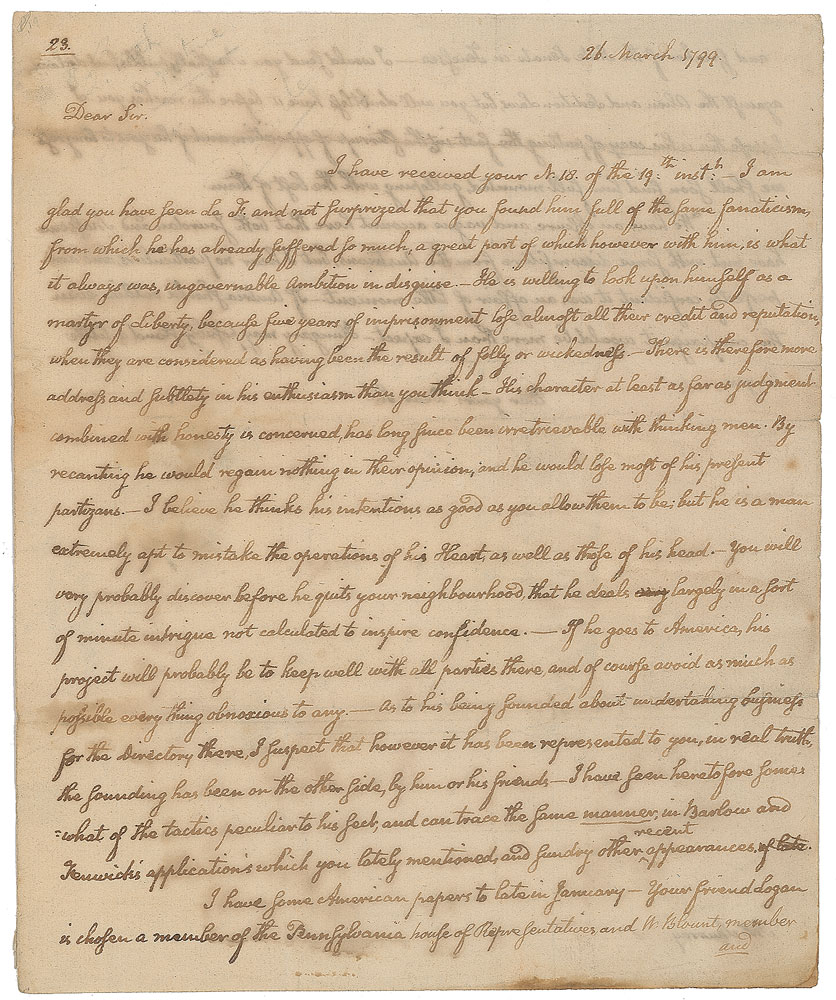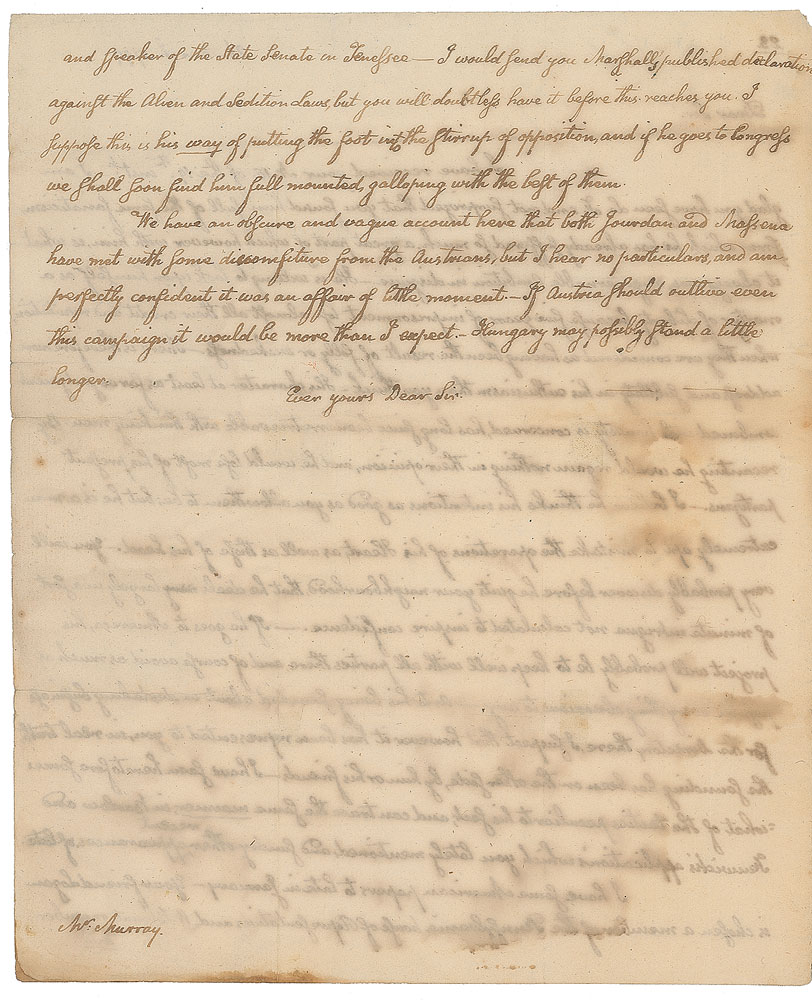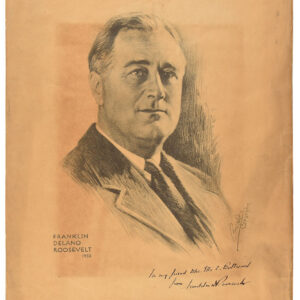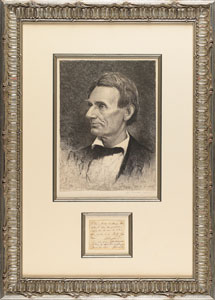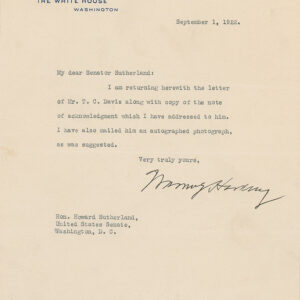Description
| Handwritten letter from John Quincy Adams as the United States Minister to Prussia, unsigned, one page both sides, 7.5 x 9.25, March 26, 1799 NFS Letter to William Vans Murray, the United States Ambassador to the Netherlands, in full: “I have received your note of the 19th inst. I am glad you have seen La F[ayette], and not surprised that you found him full of the same fanaticism from which he has already suffered so much, a great part of which however with him, is what it always was, ungovernable ambition in disguise.—He is willing to look upon himself as a martyr of Liberty, because five years of imprisonment lose almost all their credit and reputation, when they are considered as having been the result of folly or wickedness.—There is therefore more address and subtlety in his enthusiasm than you think. His character at least as far as judgment combined with honesty is concerned, has long since been irretrievable with thinking men. By recanting he would gain nothing in their opinion, and he would lose most of his present partisans.—I believe he thinks his intentions as good as you allow them to be; but he is a man extremely apt to mistake the operations of his Heart, as well as those of his head.—You will very probably discover before he quits your neighborhood, that he deals largely in a sort of minute intrigue not calculated to inspire confidence.—If he goes to America, his project will probably be to keep well with all parties there, and of course avoid as much as possible every thing obnoxious to any.—As to his being sounded about undertaking business for the Directory there, I suspect that however it has been represented to you, in real truth, the sounding has been on the other side, by him or his friends—I have seen heretofore somewhat of the tactics peculiar to his sect, and can trace the same manner, in Barlow and Fenwick’s applications which you lately mentioned and sundry other recent appearances. I have some American papers to late in January—Your friend Logan is chosen a member of the Pennsylvania house of Representatives and W. Blount member and Speaker of the State Senate in Tennessee—I would send you Marshall’s published declaration against the Alien and Sedition Laws, but you will doubtless have it before this reaches you. I suppose this is his way of putting the foot into the stirrup of opposition, and if he goes to Congress we shall soon find him full mounted, galloping with the best of them. We have an obscure and vague account here that both Jourdan and Massena have met with some discomfiture from the Austrians, but I hear no particulars, and am perfectly confident it was an affair of little moment.—If Austria should outlive even this campaign it would be more than I expect.—Hungary may possibly stand a little longer. Ever yours, Dear Sir.” Reverse of second integral addressed in another hand and bears the original red wax seal. In very good to fine condition, with light dampstaining not at all affecting readability, and repaired seal-related paper loss to the integral address leaf. In late August 1792, during the early stages of the War of the First Coalition, Marquis de Lafayette was captured by Austrian forces and held as a prisoner of state for his role in the French Revolution. He was transferred to various fortresses over the next five years before being turned over to the American consul in Hamburg on October 4, 1797. Two months later President Adams appointed his son John Quincy as the newly established Minister to Prussia, leaving his former post of Minister to the Netherlands to Murray, a congressman from Maryland. During this period, Lafayette was without home or country, restricted from traveling to the United States and barred from citizenship by the French Directorate; it wasn’t until March 1, 1800, that Bonaparte restored Lafayette’s citizenship and with it some of his properties. John Quincy’s thoughts on Lafayette seemingly align with those of Murray, who, a month later on April 28th, wrote to Secretary of War James McHenry requesting the protection of John-Xavier Bureau de Pusy, a former prison-mate of Lafayette. In this letter, John Quincy paints Lafayette with a candid stroke, impressing upon his passions for liberty while conversely addressing his more problematic reputations within his homeland. A fascinating, revealing letter concerning one of the American and French Revolution’s most complicated heroes. |

